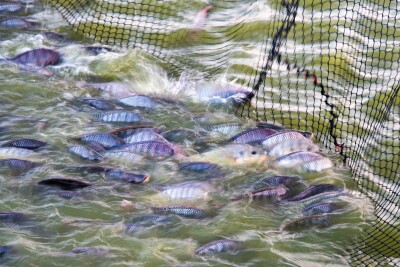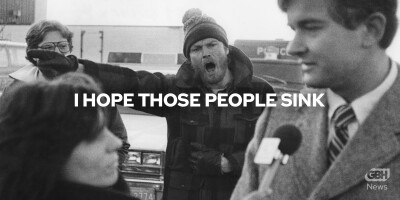A tuna fisherman's life
If selling your product on the New York market for 2 cents a pound is giving it away, what do you call it when you're told you just spent 5 cents a pound trucking it there?
You call it fishing, and on the East Coast, that was the bluefin tuna fishery through the 1960s and into the 1970s.
And that's just the tip of the iceberg. The truth is, New England's commercial tuna fishery in those years consisted of a dedicated cadre of stick fishermen — harpooners — who for the most part were lobstermen investing their livelihoods in a venture that held the profit potential of deer hunting.
And like deer hunters, many tuna fishermen then (as now) worked year in, year out with little to show for their efforts, which is how the business came to be known as "tuna wishing."
Factor in endless days of frying, freezing and thrashing in the mast, countless nights in mildewed sleeping bags, quarrelsome competitors, brutal hangovers and a fuel bill you could live on, and you have what can only be described as a true labor of love.
And no one I know loved it more than Brian Burke, known far and wide, and best, as Bucko.
The bluefin fishery was on the brink of a new era when Brian came along, nearly 40 years ago, and so was Brian.
His family had a home in Ogunquit, Maine, but when I met him he was selling cars in Massachusetts, driving a brand new Camaro, and was known as Scratchy, I suspect because of his golf game.
But he started hanging around Perkins Cove, where they soon named him Bucko, and right away you could tell, as my mother might have said, that here was another well-brought-up, middle-class guy who was going to throw it all away to go fishing.
Brian's timing wasn't bad. The Japanese had started buying bluefin, and by 1972 or so, 50-cent fish were not uncommon, and guys who could take advantage of so-called kill days — Carl and Sonny McIntire, Eric Brazer (with whom Brian got his start) and others — were seeing their long commitment to the fishery pay off.
Eventually Brian built the Josie B, the blue 35-foot fiberglass boat that he would spend his life on.
As the price of bluefin continued to rise, the fleet grew, and spotter planes arrived overhead.
Brian may have used a spotter plane for a while, but it wasn't long before he became disillusioned.
The harpoon sector, of which he was a charter member, had been established to protect a traditional fishery; there were fewer than 30 stick boats when the category was established. Airplanes, he said, were not part of that tradition. And so Brian began a campaign to get rid of the planes that would consume more than decade, to say nothing of himself.
The issue divided the fishery, and without a doubt some fishermen, as well as some members of Congress, to say nothing of NMFS, came to regard Brian as a major pain in the ass. Eventually, though, the agency came out with a plan to restrict the use of spotters.
It was a deal, of course, and I'm sure Brian was wary: "Compromise," "middle ground," and "give and take" aren't concepts that spring to mind when reflecting on Brian's world view.
For example, that shiny new Camaro he had 35 years ago was the last car he ever owned: he got in a dispute with the state of Massachusetts over a $20 fee and never renewed his driver's license.
"Brian," everyone who knew him said, "why not just get a Maine license? How the hell are you gonna get around?"
"That's not the point," he said.
For years Brian went dragging in the "off-season," and one night in a bar he gave me some loran numbers within a few microseconds of a flounder tow known as the Dab Hole. "Oh," I said. "The Dab Hole."
"That's not the Dab Hole," he said.
"Where the hell is it, then?" I said, challenging him.
He began to pound on the bar. "That's... not... the... Dab... Hole," he enunciated.
More than 20 years later, I related the story to Sonny McIntire as we walked out of the service for Brian, who died June 1.
"Yup," Sonny said. "He told me that wasn't the Dab Hole, either."
Stubborn or not, Brian didn't want for friends, and there was nothing he wouldn't do for you if you were one of them. Twice he gave up near-perfect tuna days to give me a tow, even though I was in no danger; on the second occasion I had a cod end full of rocks I couldn't lift, and he was four hours or more, wide open, towing me to a hard spot where they chafed out.
As unyielding as Brian delighted in being, his heart was as big as a cloud and soft as the gentlest breeze.
As I write this, I can see the Josie B from my house. My neighbor, Steve (The Gut) Merrill, a fish trucker and a great friend of Brian's, is doing some work on her and plans to fish the boat this summer.
Times change. Feed has been scarce and the price of tuna is down in the era of pen-raised fish. Still, I know the guys will find it reassuring to glance around every now and then and see the Josie B ranging along in search of fish, her overworked Caterpillar heaving smoke into a sky that much of the time is free of spotter planes and that is, evermore, home to Brian Burke.
So long, Bucko.
— Jerry Fraser






